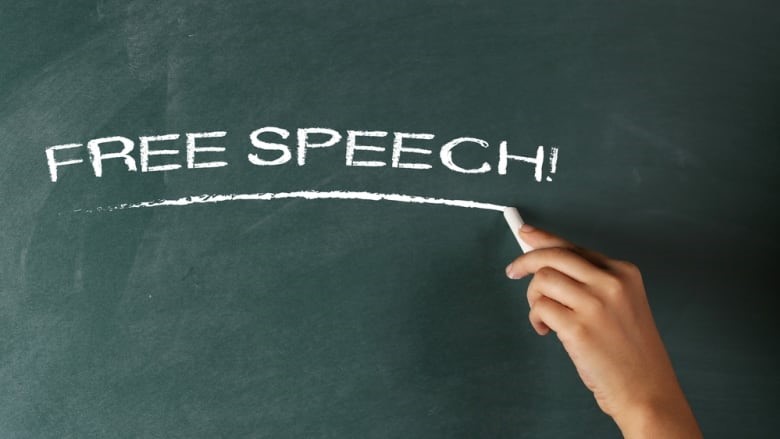
In an article published in the Métro, Mr. Steven Guilbeault states the following (original French follows the English translation):
“Freedom of expression is a fundamental value of our democracy. But the protection and well-being of our citizens, too, is a pillar of our democracy. Then we can’t say we’re just going to deal with freedom of expression, but we no longer care about the safety and well-being of our people”. – Steven Guilbeault
«La liberté d’expression c’est une valeur fondamentale de notre démocratie. Mais la protection et le bien-être de nos citoyens et de nos citoyennes aussi, c’est un pilier de notre démocratie. Puis on ne peut pas dire on va juste s’occuper de la liberté d’expression, mais on ne se préoccupe plus de la sécurité et du bien-être de notre population». – Steven Guilbeault
Mmm, do you see the possible slippery slope, like Bambi? Our federal Minister seems to be adding to freedom of expression limits that can provide our government with legal authority to “silence” citizens if they say anything that could be perceived by anyone as being triggering.
For fun, think of Bambi’s earlier post on the Evian water in France. Let’s imagine that this story happened in Canada under the new legislation. Does it make sense to you that had Evian been a Canadian brand, it would be hypothetically forced by law to stop its social media advertisements about water on the first day of Ramadan or on Yom Kippur or on Good Friday or on any other day if someone declares water “offensive” or if someone feels unsafe just by the sight of a bottle of water or a choice of word describing it or the use of H2O formula, etc. :)?
Now, let’s think of more serious cases. For example, disputes between neighbours or community members or, worse, cases of online (and offline) mobbing, or of conflicts between two political parties, or whatever else. if someone pretends to be offended by an online comment, word, or dot, that is written here or there, the proposed bill on (online) “hate speech” could serve to silence someone to supposedly protect another party. Who would be the arbitrator? Will this interpreter of the law or decision maker be independent and impartial?
Think of situations where religious people will get offended by online pictures of gay parades? Or this group of people offended by prayers of religious citizens? Are we going to have a hierarchy of offences and who would determine this?
Think of cases of limitations or attacks on freedom of expression like what happened to Mr. Ezra Levant and one of his books? Or Dr. Jordan Peterson and his new book? Or Québec’s Prime Minister for having suggested Dr. Mathieu Bock-Côté’s earlier book in his reading list? These are just recent examples that Bambi posted about. It could be anyone really or any reading or song, etc. Today, it maybe this public figure or any citizen. Tomorrow, it can be someone else. Who knows? One day someone may try to use this new law against Mr. Guilbeault himself or one of his colleagues? Would this be acceptable? Of course, not! Bambi would be the first to denounce this. Indeed, no elected politician (or regular citizen) should be silenced in a democracy for having expressed an opinion (not even Mr. Trump or Lebanon’s politicians, including those pro-Hezbollah or pro-this or pro-that).
Imagine also our increasingly centralized governments (today the Liberals are in power. Likely tomorrow too? However, one day, it will be the turn of another party). Can someone guarantee to Canadians that the proposed legislation will not be manipulated in the future (political shenanigans or moves to silence dissidents)?
Think of the excesses of big tech companies in the United States. Think of other excesses elsewhere in the world. Is this what our politicians envision for our country? Perhaps they are too excited by their idea that they do not see this risk? Could it be?
To conclude this post, why does the Honourable Mr. Guilbeault seem to be so keen on changing the parameters of freedom of expression under his new proposed legislation of “hate speech”? We already have laws that protect citizens from calls to violence or from defamation. Isn’t this enough for our Minster of Canadian Heritage? Why should we risk changing our “heritage” of democracy… paradoxically in the name of more democracy?
